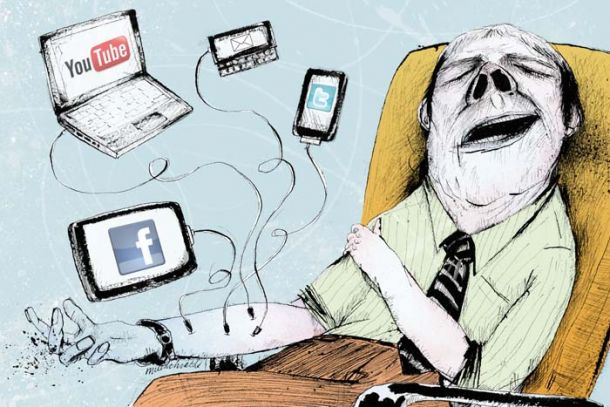“The human individual lives usually far within his limits; he possesses powers of various sorts which he habitually fails to use. He energizes below his maximum, and he behaves below his optimum. . . . it is only an inveterate habit -- the habit of inferiority to our full self.” (William James, The Energies of Man)
I came upon this quote by William James recently, and it struck me that the existential crisis that James described in the early 20th century is even more of a problem today than it was in his own time.
How do we fall prey to the “habit of inferiority to our full selves” in the 21st century? I can't help thinking that our preoccupation with the seductiveness of technology is what is preventing us from realizing our true potentials as human beings. We’d rather make quips on Facebook or text one another about some inane topic than actually embrace life in all its messy complexity and grandeur.
Cicero describes the most meaningful human relationships in terms of seeing ourselves reflected in the face of the other. If that's true, then many human beings probably don't have deep relationships at all, because they hardly ever spend enough time just being present to their fellow human beings. The use of 21st century forms of technology—the cell phone, the computer, the Ipad—creates an artificial separation between human beings that makes it impossible to see ourselves reflected in the other. And without access to the “mirror of the self” that the other represents, it is very difficult—if not impossible—to mature as a human being.
The same is true with our disconnection from nature. Time alone in nature offers human beings the opportunity to reflect on the meaning of life and our connection to the planet as a whole. By separating us from nature, technology, therefore, stunts the kinds of introspective musing that makes philosophical wisdom possible.
I’m not trying to suggest that we can or should revert to a pretechnological society: that would neither be possible nor beneficial at this point. But that doesn’t mean we shouldn’t recognize that the benefits of any form of technology always come at a cost. And the price we may have to pay for our overdependence upon contemporary forms of technology may be the inability to develop a truly mature sense of self.

